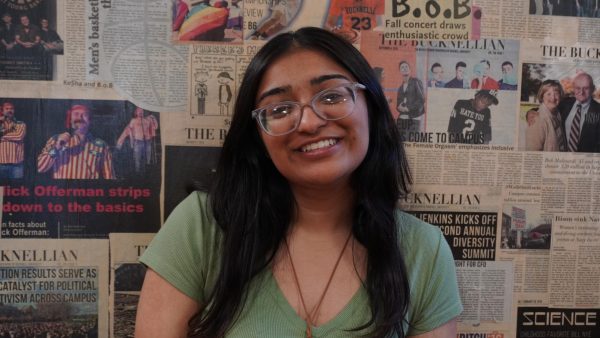The wealth disparity at Bucknell is striking. I knew I had chosen to attend a prestigious wealthy institution, but I was unprepared for the magnitude of affluence that surrounded me. The stories I’ve heard are insane—from parents donating thousands with a mere phone call to students casually purchasing cars, phones, or impulsively flying off to a trip across Europe. For someone like me, who attended a Title I public high school, even gaining admission to Bucknell and affording it felt like a monumental achievement.
Let me put this into some numbers for context. According to a 2017 report from The New York Times, a staggering 73% of Bucknell students come from the top 20 percent income bracket, while a mere 2.3% come from the bottom 20 percent.
The assumption of wealth is so prevalent that it’s almost taken for granted. It’s to the point where most of the time it is literally assumed that everyone in the room is from a well-off background. I once sat in a class where the professor made a general statement that everyone in the room is paying $80,000 a year to attend Bucknell. They did so in an attempt to make a point that students need to utilize their education wisely because they’re paying so much for it. I remember being so taken aback and looking around the room. It was a moment of dissonance for me. In my head, I was thinking Well, I’m not just at Bucknell because my parents are paying $80,000 a year for me to come here. I’m able to study here because of financial aid and scholarships. I’m studying at Bucknell because this is a means of upward mobility. And I know from personal experience that many more Bucknell students share this sentiment than one might think.
Bucknell offers various resources to support students from low-income and minority backgrounds, such as our campus food pantry, strong need-based aid, and generous financial aid for studying abroad. But at the same time, I don’t think many of these resources have an effect in addressing the social aspects and discomfort that many low-income students experience.
Oftentimes, social situations can exacerbate these feelings of unease, especially for first-year students still acclimating to campus life. It’s crucial to be mindful of the circumstances of those around you.
When you try to make plans with a friend but they can’t just hang out because they have to go to work or want to get homework done ahead of time, don’t make them feel like a bad friend.
When you want to drive off-campus to spontaneously get food or do an activity, but someone would rather not because of the expenses, I ask you again, don’t make them feel bad.
My point is to consider the financial constraints of others and please refrain from making them feel guilty for prioritizing work or managing expenses. Just say okay and move on with your day. I’ve heard way too many stories of my own friends and peers feeling bombarded by the status and ignorance of the majority of their peers.
And let’s not forget the expenses associated with college for students from all backgrounds. Even those from middle-class families can find themselves burdened by the cost of textbooks. If you’re a professor, please be patient and understanding with students who may struggle to purchase course materials on time.
It’s essential to acknowledge that not everyone at Bucknell comes from a wealthy background, despite some of the figures mentioned. Being mindful of this fact means refraining from assuming that everyone around you is financially privileged. Each person is on their unique journey, facing their own challenges and financial realities.
Discussing financial struggles can feel embarrassing and vulnerable for many students on campus. When discussing this, I’ve heard my own peers repeat different reiterations of “it is what it is, I just have to work hard enough because it’ll pay off” so many times. Yet, I truly believe that if we, as a student body, made a conscious effort to choose our words and actions more thoughtfully, we could foster a truly inclusive and empathetic atmosphere. Sometimes, all it really takes is being mindful and considerate.
When I envision my future aspirations, I don’t just think about pursuing my dream of attending law school and becoming a lawyer. I also find myself recognizing the transformative impact and empowerment that financial stability can give someone.
I think about my hard-working immigrant parents, and how I dream of being able to give back to them one day. I think about how one day, I’ll be able to comfortably pay for my children to attend schools like Bucknell. I think about how much I hope to see my friends and peers live comfortably, achieve their goals and become leaders in their chosen fields.
Just as I hope to navigate the path toward my goals with sensitivity and awareness, I encourage each of us to extend the same consideration to others.





















